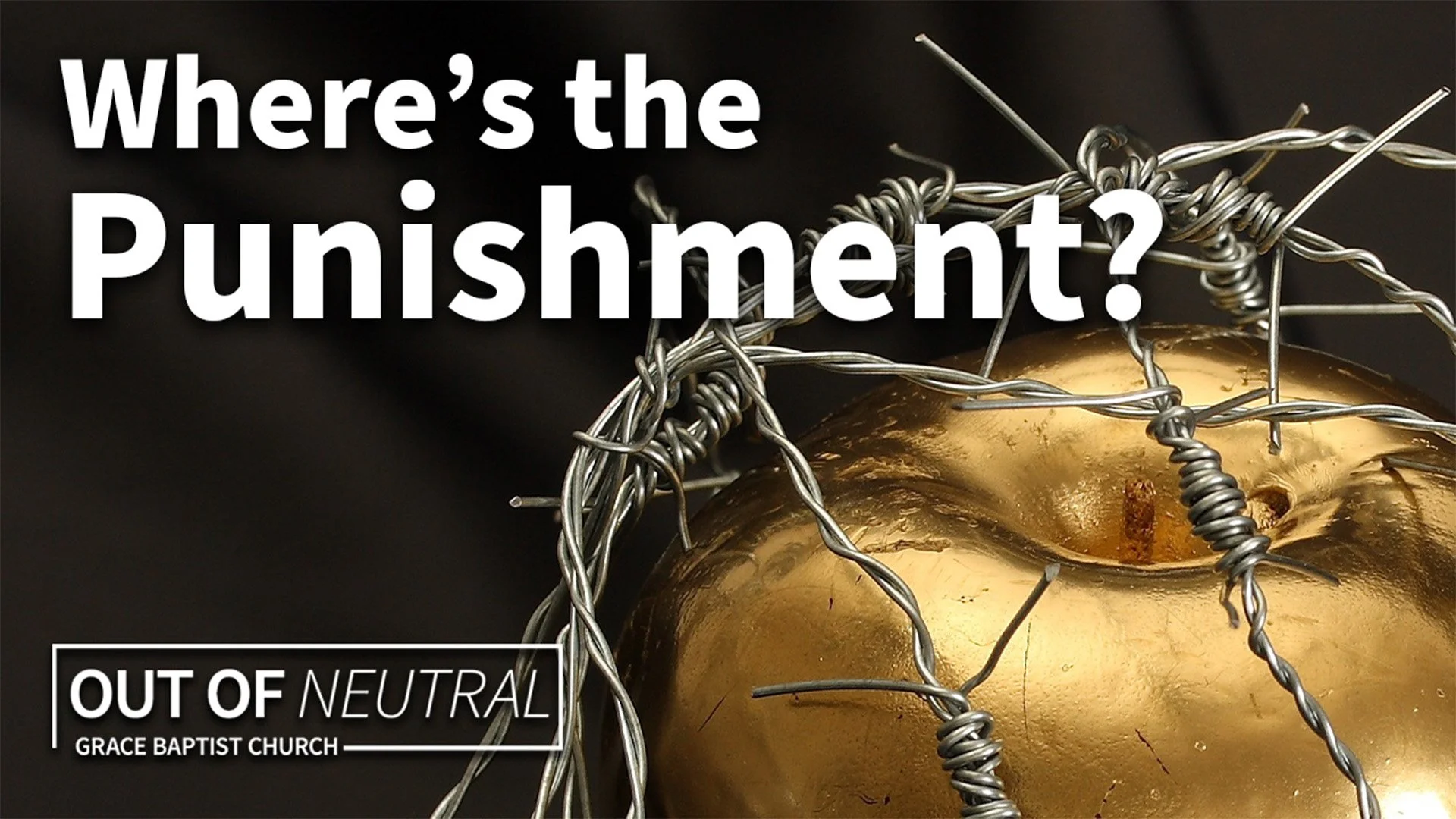Nobody’s watching. Surely, no one will notice. You’ve heard God’s warnings, but you decide to do it anyway. It’s compromise. You’re cutting a corner. You’ve stepped over the line. And then you wait for God’s consequences. Only they don’t come. Whew, you got away with it! Or did you? In those moments, we often misinterpret sin’s consequences and God’s heart toward us.
1. Sin’s consequences are seldom what we think
We get some idea of how to think about God’s warnings and sin’s consequences in the opening chapters of Genesis. God warns Adam and Eve not to eat from the knowledge of good and evil saying, “for in the day that you eat of it you shall surely die” (Genesis 2:17). When they do it anyway, we expect them to fall dead. But they walk away still very much alive. Instead, their innocence has died, and they experience shame for the first time (Genesis 3:7). Something dies in their relationship with God, and they withdraw from Him in fear instead of moving toward Him in love (Genesis 3:8). And something dies in their relationship as a couple as well as there’s blame and denial in their first conflict (Genesis 3:12). At the end of the chapter, we learn that they have been barred from the tree of life (Genesis 3:24), and so they now live under a death sentence.
When we think “we’ve gotten away with it,” the consequences we experience are subtle and often unseen. Prayer starts to feel like a chore. Worship feels more empty. Peace seems to elude us, and conflict is often the result.
2. Choosing sin removes God’s protection from sin
Perhaps one of sin’s most fearful consequences, in this life at least, is that sin makes it easier to sin. Sin is a gateway drug to deeper and more serious sin. Paul describes this in Romans 1:21 when he talks about people who “although they knew God, they did not honor him as God or give thanks to him.” He then gives the consequences: “they became futile in their thinking, and their foolish hearts were darkened.” Choosing one sin makes it easier to justify the next. And when we tell God that we want sin more than Him, He gives us what we want and eases the restraints that keep us from sinning. God gives us over to our sin (Romans 1:24, 26, 28). This is how addiction is born and sinful habits are formed.
3. We often confuse God’s patience with His ignorance
Although sin’s consequences impact us in ways that we often overlook, in this life they’re still far less than they could be. The temptation is to think it’s because God didn’t notice. That’s not what’s happening. Romans 2:4 clarifies God’s heart: “Or do you presume on the riches of his kindness and forbearance and patience, not knowing that God's kindness is meant to lead you to repentance?” What feels like us getting away with sin is often just God choosing to show His patience and mercy in our lives. His hope is that through His grace, we’ll come to see Him as good and valuable and precious and our sin as destructive and controlling by contrast. Matthew Henry once wrote, “There is in every willful sin a contempt of the goodness of God.”
Consider the consequences God has spared you from. Think about how patient He’s been. Remember the gifts and blessings and kindness that He’s demonstrated when He had every right to cast you off. When temptation comes, choose the One who has been faithful to you and reject the sin that seeks to take you down.
In awe of Him,
Paul














